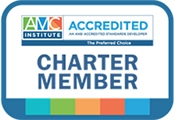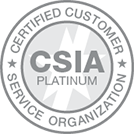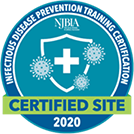By Amy Williams, CAE, MPA, Senior Director
One of the biggest challenges of managing a national organization with incorporated local chapters is helping them remain compliant with their IRS and state filing requirements. The chapters are usually led by volunteers, who are leaders within their industry but have no knowledge of the nonprofit filing requirements because of their limited nonprofit experience. Additionally, chapters transition leaders on an annual or semi-annual basis, so even when one treasurer does understand the requirements the information is often not passed along to his/her successor.
There are several things that every chapter leader should be aware of with regard to IRS and state filing requirements.
Group Exemptions
Local chapters can be included under a group exemption (not to be confused with a group return) for a central organization that has received a group exemption letter. Group exemptions are convenient because the subordinates in a group exemption do not have to file separate applications for exemption in order to be recognized as a 501(c) organization.
In order to be included under a group exemption, new chapters need to submit the following to the central organization, who will send it to the IRS:
- Official Name
- Employer Identification Number (EIN)
- Treasurer name & contact information
- Purpose
- Activities
- A signed (by the President) consent to be included in the group exemption
- A copy of the accepted Articles of Incorporation
- Chapter bylaws
On an annual basis, the central organization provides the IRS with an update on the subordinates to be included.
Annual Form 990 Filings
Every chapter is required to file a return annually, even if they are included under a group exemption. The filing is due every year by the 15th day of the 5th month after the close of your tax year. For example, if your tax year ended on December 31, the filing is due May 15 of the following year.
The form that needs to be filed is determined by the organization’s gross receipts and total assets:
- Form 990-N (e-Postcard): Gross receipts of $50,000 or less
- Form 990-EZ: Gross receipts less than $200,000 and total assets of less than $500,000
- Form 990: Gross receipts of $200,000 or more or total assets of $500,000 or more
Many chapters will be able to file the postcard, which is 8 simple questions and should take 10 minutes or less.
In addition to the appropriate Form 990, chapters may also have to file the Form 990-T if they have $1,000 or more of gross income from unrelated business activities. Unrelated business income is defined as income from a trade or business activity that is regularly carried on and is not related to its exempt purpose. Examples include merchandise and advertising sales, sponsorships where a substantial return benefit (more than 2% of the sponsorship payment) is provided and “actively promoted” affinity programs. These unrelated business activities are allowed as long as they are insubstantial when compared with exempt activities.
Consequences of Not Filing
The tax-exempt status of an organization that fails to file a required annual return for 3 consecutive years is automatically revoked. Once a chapter loses its tax exempt status, it is consider a for-profit business and is required to file federal income tax returns and pay any applicable income taxes.
You can check to see if a chapter has been revoked via the IRS website: http://apps.irs.gov/app/eos
To regain the tax status once it has been lost, the chapter will need to complete the IRS Form 1024 (for 501(c) 6) or the IRS Form 1023 (for 501(c) 3) applications and can no longer be included under the group exemption. The process for reinstatement will take months for both forms since the IRS is very slow to process filings.

State Filing Requirements
Most states also require that the chapter file an annual report (and pay a minimal fee) to maintain your incorporation status. The annual report typically requires just a few easy pieces of information. Failure to file can result in your incorporation status being revoked.
To find out your state’s requirements, check the department website that governs non-profits in your state (in most states it’s the Department of State). You can find the state websites here: http://www.irs.gov/Charities- &-Non-Profits/State-Nonprofit-Incorporation-Forms-and-Information
Chapters are the lifeblood of many organizations. It is important that chapter leaders are aware of the annual IRS and state filing requirements so that they can remain compliant and in good standing.




